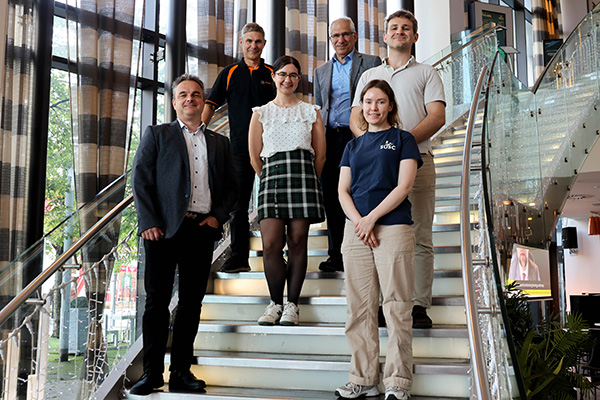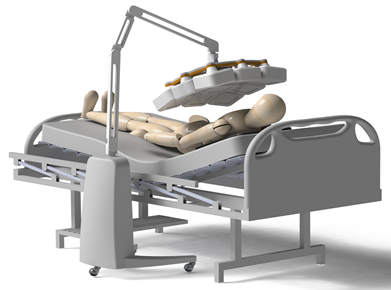£400k awarded for breakthrough imaging research

 Professor Carsten P Welsch and experts from his QUASAR Group have secured £400k in funding from the Science and Technology Facilities Council (STFC) for their innovative OptiX project. This two-year project, supported under the UK Research and Innovation’s (UKRI) 2024 Late-Stage Commercialisation Scheme, aims to bring advanced 3D chest imaging directly to the patient’s bedside through the development of groundbreaking technology.
Professor Carsten P Welsch and experts from his QUASAR Group have secured £400k in funding from the Science and Technology Facilities Council (STFC) for their innovative OptiX project. This two-year project, supported under the UK Research and Innovation’s (UKRI) 2024 Late-Stage Commercialisation Scheme, aims to bring advanced 3D chest imaging directly to the patient’s bedside through the development of groundbreaking technology.
Traditional 3D imaging systems, such as computer tomography (CT) scanners, are essential in modern medicine but are hindered by their size, cost, and power requirements. These limitations make them impractical for use outside of large, well-equipped hospitals, leaving many clinics and emergency settings without access to such advanced diagnostics. The OptiX project addresses these challenges by utilizing Flat-Panel Source (FPS) technology, developed in collaboration with UK-based company Adaptix Ltd. This innovative technology replaces the traditional moving X-ray tube with a compact array of electronically controlled emitters embedded in a flat panel.

Artist impression of the final chest imaging system.
The FPS technology eliminates the need for mechanical movement, allowing for rapid scanning and efficient 3D image reconstruction in a portable device. This could significantly enhance patient care by making 3D imaging accessible in a variety of settings—from hospital wards to emergency situations—without sacrificing image quality or safety.
Over the next two years, Professor Welsch’s team will focus on refining this technology, increasing its imaging capabilities while maintaining low radiation doses. Extensive simulations and experiments will guide these enhancements, ensuring the system meets the highest clinical standards. The ultimate goal is to deliver a fully tested prototype ready for commercialization.
Professor Welsch said: "The impact of the OptiX project could be transformative. By making high-quality 3D imaging portable and affordable, this technology has the potential to revolutionize medical diagnostics, especially in environments where traditional CT scanners are impractical. With its potential to capture a significant share of the global X-ray imaging market, OptiX offers a disruptive alternative that aligns with the growing demand for more accessible and safer medical technologies."